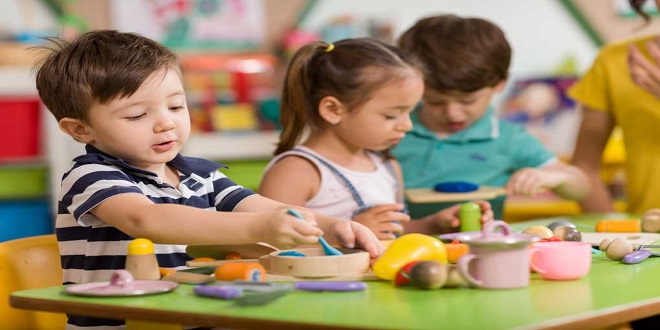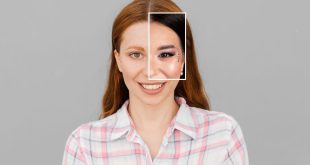Singapore’s education system has strong strength in Asia and even the world. This is because Singapore retains some of the characteristics of British education, and combined with its own needs for elite education, and finally develop a unique education system for diversion.
Singapore’s highly advantageous education system not only cultivates batches of outstanding local talents, but also attracts countless foreign students. There are many people who immigrate to Singapore for their children’s education. So what kind of magic attracts so many overseas students to study? Let’s take a look at the education system in Singapore.
Advantages of the Singapore education system
- Unique bilingual environment
Singapore stipulates that all primary and secondary schools must implement bilingual education. English is the first language of instruction, with the exception of native language courses and ethics courses, the rest of the courses are taught in English.
Singaporean Chinese account for 78%, and Chinese is the main language of communication. The living habits and way of thinking are close to those of China, which facilitates students from China to quickly adapt and integrate into local life.
- Vocational education and elite education
Singapore pursues an elite education, not to create high-scoring “elites”, but to tailor-made talents for the needs of various industries, so that everyone can play their strengths and become a contributing member of society.
Singapore’s education system is committed to helping students show their talents, and teaching students in accordance with their aptitude enables students to enter different learning levels according to their talents, making full use of limited educational resources, so as to select the limited number of talents that the country urgently needs for the small country of Singapore.
- Low cost, high cost performance
Studying in Singapore, both tuition fees and living expenses are relatively low and cost-effective. At the same time, the government and local enterprises provide grants and various scholarships to public institutions, and the cost is lower after obtaining the grants.
Singapore Education System
- Singapore Kindergarten
Kindergartens in Singapore typically offer a three-year pre-school curriculum for children aged 3 to 6, including developing language and reading skills, basic numeracy, simple science, social skills, creativity and problem-solving skills, as well as music appreciation and outdoor games, etc.
All children attending kindergartens in Singapore learn two languages, English and their mother tongue. Kindergartens in Singapore are in classes from Monday to Friday, from 7am to 7pm.
- Primary education system
The primary school entrance age in Singapore is 6 years old. Year 1 to 5 accept foreign students, and Year 6 participates in the National Graduation Examination. Primary school is divided into a four-year foundation stage (grades 1-4) and a two-year orientation stage (grades 5-6). At the foundation stage, the main subjects of the school are English, mother tongue and mathematics, and other auxiliary subjects include music, arts and crafts, physical education and civic education.
Students in the third grade of primary school begin to study science. In order to enable students to develop their full potential, the school will adopt a diverted education system in the fourth grade of primary school according to the students’ learning ability. In Singapore, a primary school student will take the Primary School Leaving Examination after completing Year 6. The student passes the Primary School Leaving Examination and progresses to secondary school.
- Secondary education system
The Primary School Leaving Examination will assign students to different secondary courses:
– Special Class: Only those with excellent grades in the Primary School Leaving Examination are accepted, and about 5% of the primary school graduates are admitted. The 4-year program allows students to take Advanced Mother Tongue, either Advanced Mother Tongue or English as their first language.
– Express Class: More than half of primary school leavers are enrolled. For the 4-year program, students can only take the Express mother tongue course, other courses are the same as the special courses, and English is the first language.
Students in both programmes can sit for the Singapore O-Level Examination in their fourth year of secondary school.
– Regular Class: About 38% of primary school leavers are enrolled. Students need to take the Cambridge N-level examination in the fourth year, after passing the course they can study the fifth year course, and then take the Cambridge General Diploma examination with the special / express course students. Most students do not take the fifth year course after the N-level examination and go directly to the technical college.
Usually qualified secondary school graduates in Singapore choose junior colleges, senior high schools and polytechnics (tertiary institutions) to continue their studies or enter social work based on their grades and interests. The prerequisite courses for junior colleges are two years and the senior secondary schools are three years.
- Junior College / High School / Polytechnic
After completing the O-level examination, students can apply for the pre-university courses of the junior college (two-year) or the pre-university center (three-year), as well as take the Singapore “high-level” A-level examination, and then take the Public examination results to apply for admission to the university.
After passing the Cambridge General Certificate of Education (O-level) examination, secondary school students can apply for a two-year course in Junior College. In addition to taking the two main subjects of General Course and Mother Tongue, Junior College students must also learn from their own Four subjects are selected for the Cambridge General Certificate of Education (A-level) examinations in the chosen arts, sciences or commerce.
There are five polytechnics in Singapore, namely:
- Nanyang Polytechnic
- Ngee Ann Polytechnic
- Singapore Polytechnic
- Temasek Polytechnic
- Republic Polytechnic
The polytechnic in Singapore has established a diversified curriculum according to market needs, and the established courses include mechanical engineering, business administration, mass communication, design and quantum communication. The college also offers many specialised subjects such as optometry, marine engineering, nurse training, early childhood education, speech and film production.
- Singapore University Education
There are five public universities in Singapore:
- National University of Singapore (NUS)
- Nanyang Technological University, Singapore (NTU)
- Singapore Management University (SMU)
- Singapore University of Technology and Design (SUTD)
- Singapore Institute of Technology (SIT)
- Singapore University of Social Sciences (SUSS)
Among them, the National University of Singapore and Nanyang Technological University are regarded as the top universities in Asia.
– National University of Singapore
National University of Singapore is the highest institution of higher learning in Singapore, with outstanding leadership in teaching, research and entrepreneurship in the world. In this year’s latest QS Global University Rankings, the National University of Singapore is the number one university in Asia.
NUS is the oldest and most prestigious university in Singapore. NUS currently has 9 colleges and more than 50 departments, cultivating well-rounded and knowledgeable undergraduate graduates. NUS has 7 postgraduate schools offering high-quality postgraduate programmes.
– Nanyang Technological University
Nanyang Technological University, referred to as NTU, is a research-intensive university with an international reputation for its solid foundation and strong advantages in the fields of science and engineering. In the QS global university rankings, it also has a brilliant record of surpassing the National University.
Known as one of the most beautiful university campuses in the world, it provides professors with the best environment for free teaching and research. NTU is one of the most outstanding engineering universities in the world. It has a world-renowned reputation for research in many fields such as nanomaterials, biomaterials, functional ceramics and polymer materials. It is a member and founding school of the Global Alliance of Science and Technology Universities.
There are many private universities in Singapore, and there are many high-quality private universities that are deeply loved by Chinese students, such as SIM, PSB, JCU, EASB, Kaplan, MDIS, Curtin, etc.
Private universities in Singapore have some very popular courses such as language, business administration, marketing, public relations, hospitality, accounting, finance, logistics, computing, etc.
 Pagal World
Pagal World




